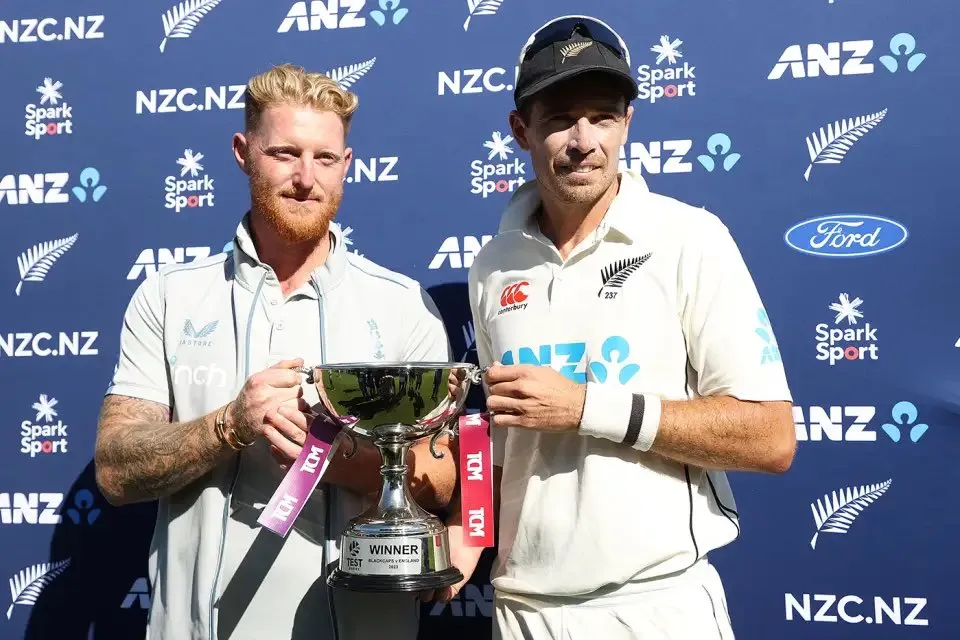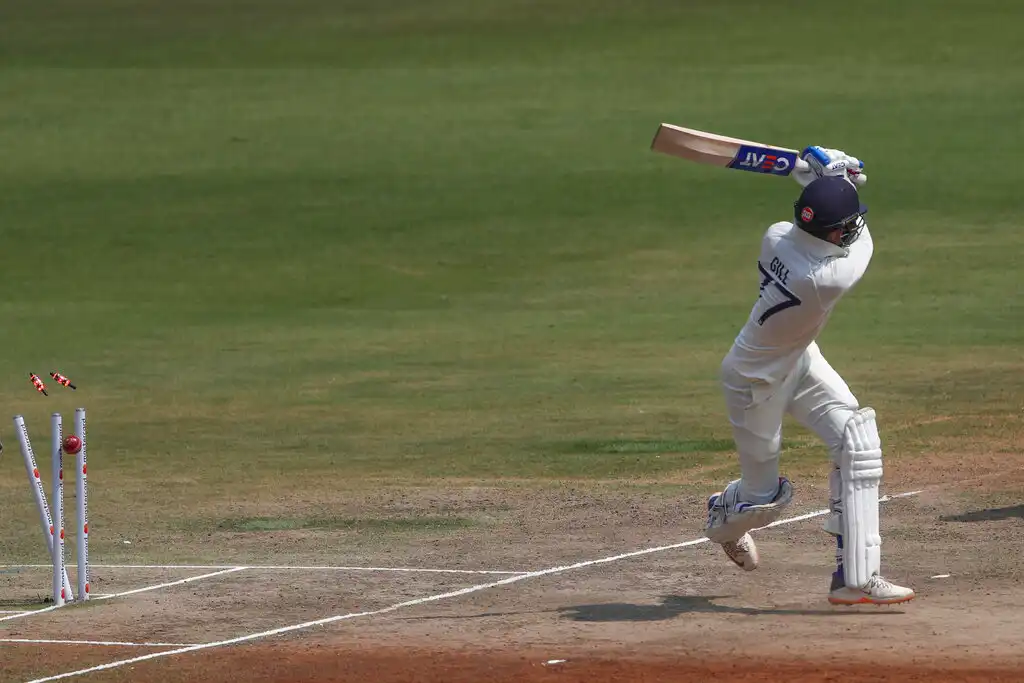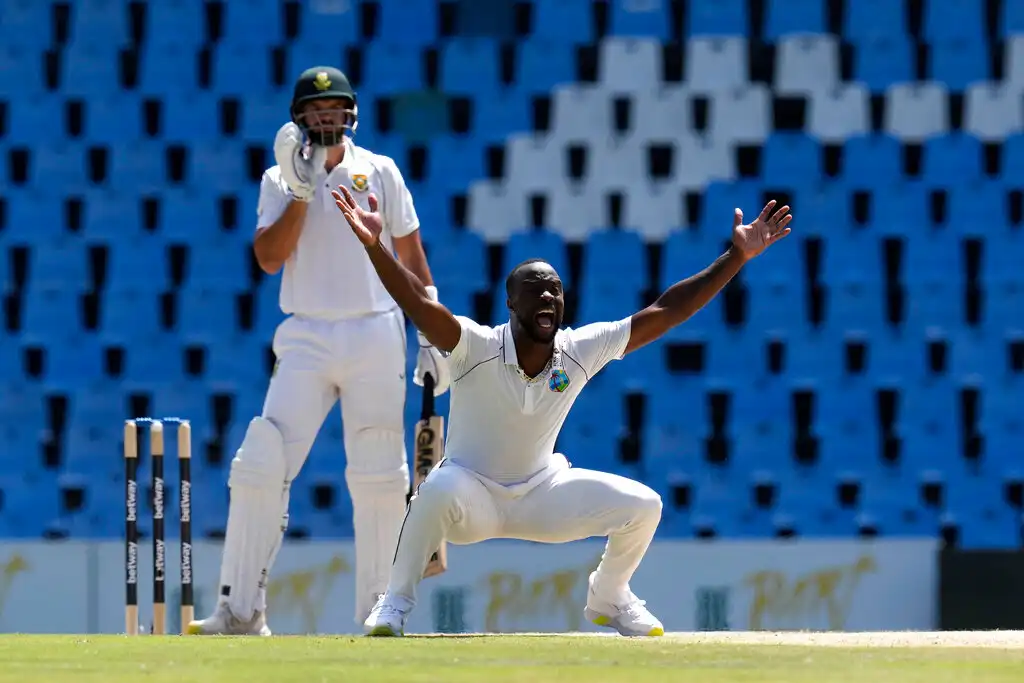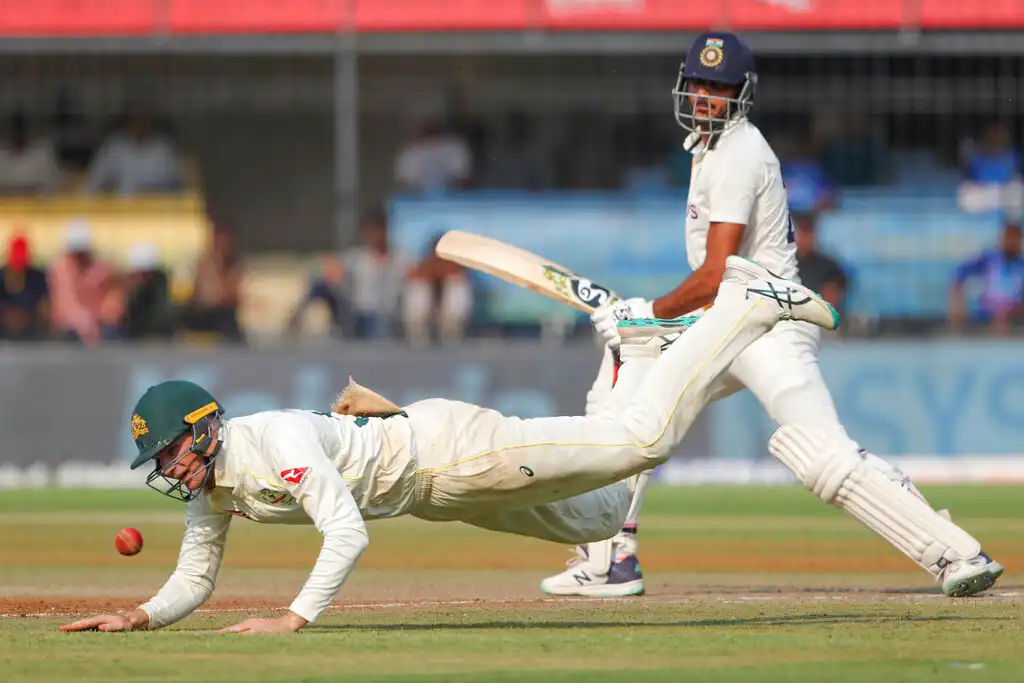 England and New Zealand shared the trophy (Twitter/@TheBarmyArmy)
England and New Zealand shared the trophy (Twitter/@TheBarmyArmy)
English poet and author Rudyard Kipling played some cricket, having been teamed with other literary luminaries in 1877 by JM Barrie. Meeting the twin impostors of triumph and disaster the same, not to mention risking all winnings on one turn of pitch and toss, losing yet never breathing a word of your loss might very well have foreseen the McCullum-Stokes approach to Test cricket.
There is seldom a reward in life that comes without risk. In this instance, New Zealand’s delight and England’s despair came from an intoxicating mix of both triumph and disaster in equal measure, at least in a cricketing sense.
The most basic facts about the second Test between New Zealand vs England in Wellington are that New Zealand won by one run, the thinnest possible margin of victory, only recorded once before when the West Indies defeated Australia at Adelaide in 1993 by the same margin.
Hunting a seventh consecutive victory, a first series win in New Zealand for 15 years and a first winter since 1899 of winning all their Tests abroad England’s defeat came having invited New Zealand to follow on, the 296th occasion in the history of Tests a team has faced such adversity.
The victorious Kiwis became only the fourth team to emerge as winners, joining England, who twice defeated Australia, in 1894, then even more famously at Headingley in 1981 and India, who bought a 16-match winning run for Australia to a shuddering halt at Eden Gardens in 2001.
It is unlikely, however, that England (certainly not Brendon McCullum and Ben Stokes) will consider defeat in Wellington by one run to be a disaster. Quite the opposite, in fact, they will focus on the big crowds, the captivating quality of the entertainment and the pure, heart-stopping, edge-of-seat drama of the game’s denouement.
Probably best to leave it a day or so before suggesting any of that to Jimmy Anderson though.
He is still yet to hit winning runs for England in any of his 179 Tests and although by his own admission he “would not get anything out of it”, it’s unlikely that failing to do so when England were just two short of victory and one short a tie will lighten his notoriously grumpy mood.
The post-match words of captain Stokes by contrast, were instantly focused upon the long-term bigger picture rather than the short-term pain of defeat. "Even though we came out on the wrong side of it” he said, “you can't help but feel blessed that we managed to be a part of an incredible game like that."
Captain Hindsight was UK Opposition leader Sir Kier Starmer’s barbed nickname for former UK prime minister Boris Johnson. It is absolutely not a sobriquet to be levelled at Stokes though.
"Imagine captaining in hindsight? That's not something I would ever do," he said in reference to his decision to enforce the follow on. “Other teams are allowed to play better than us and New Zealand have played better than us this week." Magnanimity, realism and positivity are fine qualities for any leader and Stokes displays them in abundance.
A future generation looking back on the scorecard from this game will only get a small part of the extraordinary Wellington story. Scorecards, after all, are a one-dimensional medium, yet contain within them tales of sporting endeavour, heroism and human fallibility in equal measure. Buried amongst the runs, wickets, balls delivered and boundaries hit, is the real hidden treasure recounting twists and turns of fortune, career highlights and nadirs, winners and losers within the match itself or indeed a whole career.
There were certainly big decisions and individual moments of both heroism and daftness that combined to make this Test the intoxicating cocktail it was. Stokes’ decision to ask New Zealand to follow on, however, was only of important in the light what transpired. Whilst it bucked the recent trend for captains to build leads and bat opposition sides out the game, at the time, with England on top and New Zealand rocking it made sense and was very much in the new England spirit of driving the game forwards.
England will rightly reflect on their less stellar moments. Joe Root’s running out new star Harry Brook before he could even face a ball was nothing short of calamitous and the former England captain knew it.
Echoes of Geoff Boycott and Derek Randall rattled around the Basin Reserve as Brook ran past broken stumps and back to the pavilion. At 80 for 5 and still needing 177 to win, Root set about righting his wrong only to fall short of a second century for the match when he took on Neil Wagner’s short pitch deliver one time too many.
As England edged, rather than buccaneered their way to New Zealand’s total, Stokes batting on one good leg, Foakes and Broad also fell to Wagner in ways that the cold dawn will cause them to rue.
To see this result purely through the lens of England's errors would be sadly misguided, however. New Zealand dragged themselves from the pit of despair and almost certain defeat to claim a famous win. The guts and skill of Kane Williamson as he emerged from his recent extended slough to set up the victory was nothing short of magnificent and he was well supported by the twin Toms, Blundell and Latham.
Neil Wagner was every inch the ageing prize fighter, battered, bruised and out for the count after a first innings pounding, only to rise from the canvas and find the strength to push his body beyond its limits once more and land the punches when England left their chins unguarded.
The final showdown was pure Hollywood as 36-year-old Wagner faced off against forty-year-old Jimmy Anderson. Never mind the Rumble in the Jungle, this was the Battle of The Basin Reserve. A contest neither deserved to lose and indeed a tie was agonisingly close until Wagner swung and Jimmy toppled.







